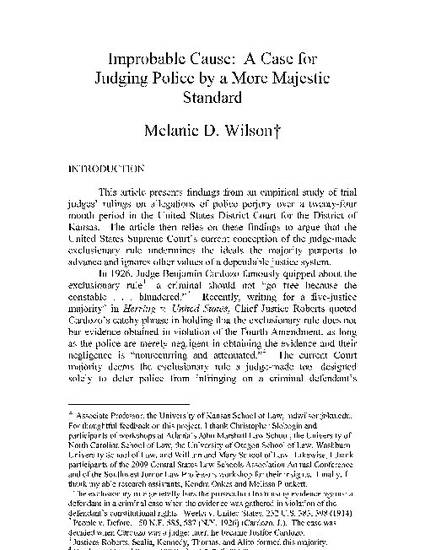
Several prior studies have demonstrated that police sometimes, if not often, lie in an attempt to avoid the effects of the exclusionary rule. This study of federal trial judges in the District of Kansas suggests that judges may be fostering this police perjury. Judges may unwittingly encourage police perjury because they subconsciously recognize that acknowledging perjury will probably result in release of a culpable defendant. Judges may also permit perjury because they cannot determine when police are lying. In either case, the Supreme Court majority's conception of the exclusionary rule naturally leads trial judges to deny defendants' motions to suppress. When trial judges consider police deterrence as the sole reason to invoke the exclusionary rule, judges necessarily consider the police's success in uncovering evidence of the defendant's guilt, a desirable, not deterrent-worthy result. To awaken trial judges' vigilance about police dishonesty, which corrupts a reliable justice system by obtaining the admission of tainted evidence, this article argues for the Ginsburg-Stevens more majestic conception of the exclusionary rule. Such a conception does not require a change in the law but, rather, a return to the Supreme Court's earlier precedent, explaining that although deterrence of police misconduct is an important and primary goal of the exclusionary rule, the rule also serves to protect justice system integrity.
